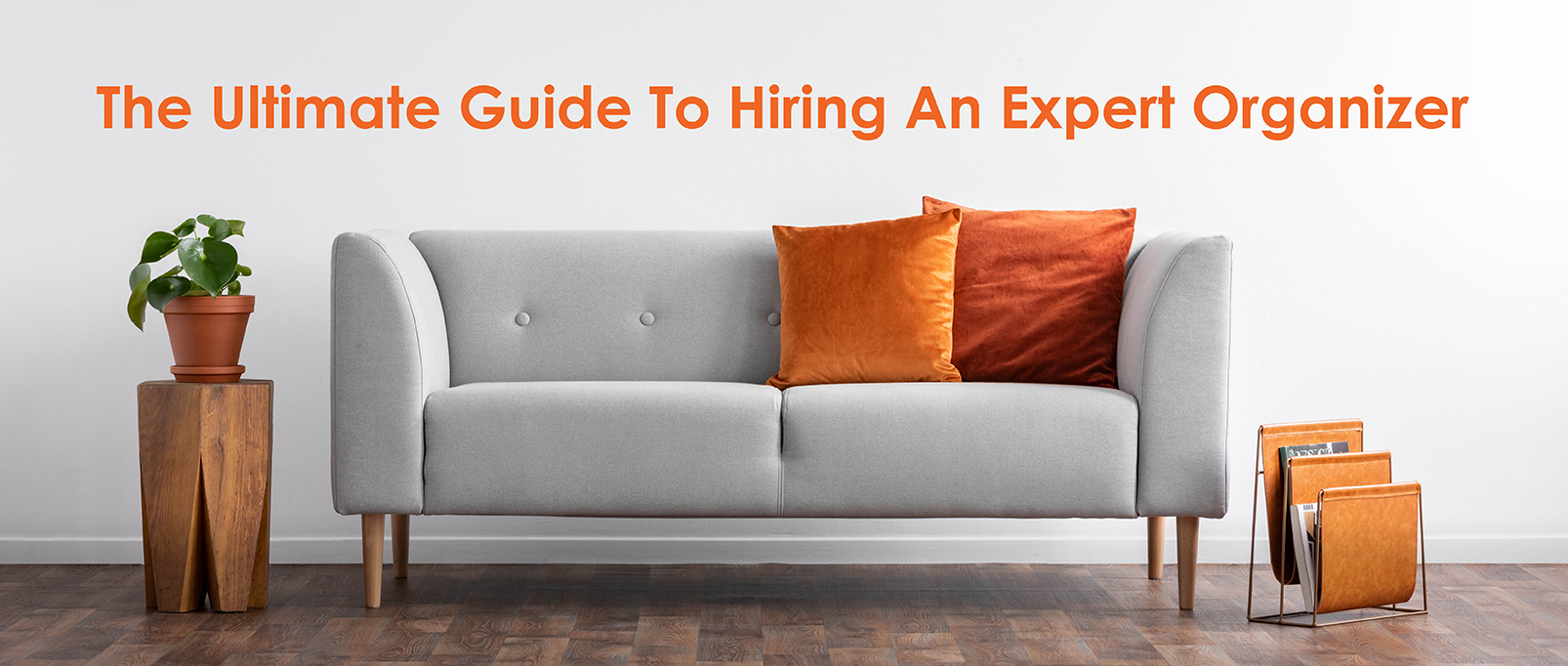


Looking to hire a professional organizer but don’t know where to start? Here’s how you can start living an organized life today…
If you are reading this, you have probably thought about how to hire a professional organizer to help you get your life in order. I am sure you will agree that living an organized life will help bring peace to you and your home, but are you in need of professional help? We are here today to get you to ask yourself the right questions to see if it is time to bring in an expert.
Before we go much further, we would like to explain what an expert organizer is. An expert, in any profession, is a person who has a special skill or knowledge relating to a particular subject.
An expert organizer is very similar in definition. The distinguished difference is that an expert does not have to transfer skills to clients. Experts are there to help the client create order with or without them present. An expert is someone who is decisive and goal-oriented for the client and the client’s needs, focusing on the best solutions for someone in their spaces.
An expert is someone who is professional, non-judgmental and capable of effective problem solving. Expert organizers are decision facilitators. They help clients with the decision-making process by sorting things to help the client see the value, or lack of value, in the things they own.
Now that we know what an expert is, let’s see if you are in need of their help. Below are a few questions for you to think about before you hire a professional organizer. Be honest with yourself; this is only a tool to help you decide if seeking an expert will help solve your disorganization problems.
Has there been a large change/event in your life?
We are all creatures of habit and when large life events happen, adjusting to a new way of life can be difficult. We like to refer to these as life circumstances and they include everything from a move to a new house, marriage, divorce, death or birth. These changes are things that can have a great impact on your life, making it hard for us to adjust and keep up with the day-to-day maintenance we are used to.

Why now?
For those of you who know what life circumstance has recently occurred that is making you feel overwhelmed and disordered, this question will be easy to answer. However, some of you might not be exactly sure what made your disorganization occur, but maybe you have reached your breaking point and you are ready for a change.
Have you tried it yourself?
Even though you might not think you can do something yourself, it is always good to try. If you try and fail, it is a good sign that you might need some outside help. Determining what your clutter is costing you might help you decide if hiring someone is worth the additional cost in the long run.
What is your clutter costing you?
Do you know what your clutter is really costing you? This can include financial costs, like late bills, but it can also include other costs like lost relationships. Determining what your clutter is costing you might help you decide if hiring someone is worth the additional cost in the long run.
Do you need or want help?
I am sure you have all heard the saying, “You can’t help someone who doesn’t want to be helped.” Hiring an organizer is no exception. If you are ready to get organized, you might feel like you need the help to get started, but make sure having someone come in is also something you want.
What do you wish to accomplish?
When considering hiring an expert, it is important to be realistic about your goals. Clutter doesn’t accumulate overnight, and even with the help of an expert, it will not disappear overnight. Decluttering will require decision making and maintenance to get your home organized and clutter free.

The first thing to keep in mind in order to hire a professional organizer is that it is not like hiring a plumber or electrician. Organizing services are better when compared to a personal trainer, a coach, or a hands-on instructor. This is because the nature of the professional organizing industry is to help others achieve their organizing goals and help them maintain those goals, not just to fix a leaky pipe as your local plumber would (not that we don’t love our local plumbers!). Typically, each professional organizer will have a different approach and style of doing things. The important thing is to hire an organizer who can help you in the way that you want to be helped. Because this is a service-based industry, there are many different expertise levels and things to consider before you hire an organizer. We are here to help you clear the industry clutter and help you make the best decision for you and your organizing needs.
First off, you may be surprised that there is no governing body for the organizing industry, which means there is no requirement of industry licensing, certifications or continued education. We mention this because it is important to keep in mind before you hire an organizer.
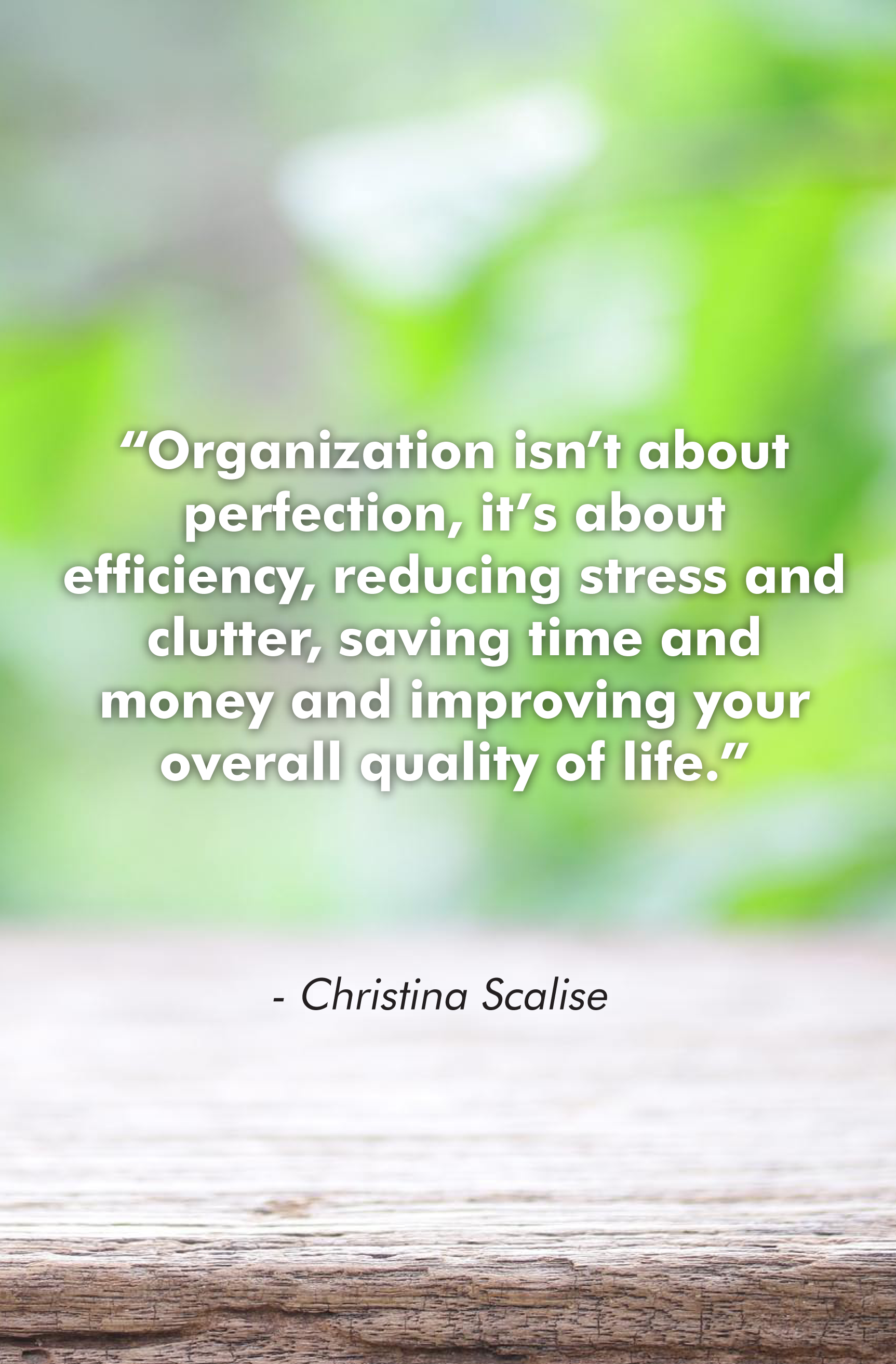
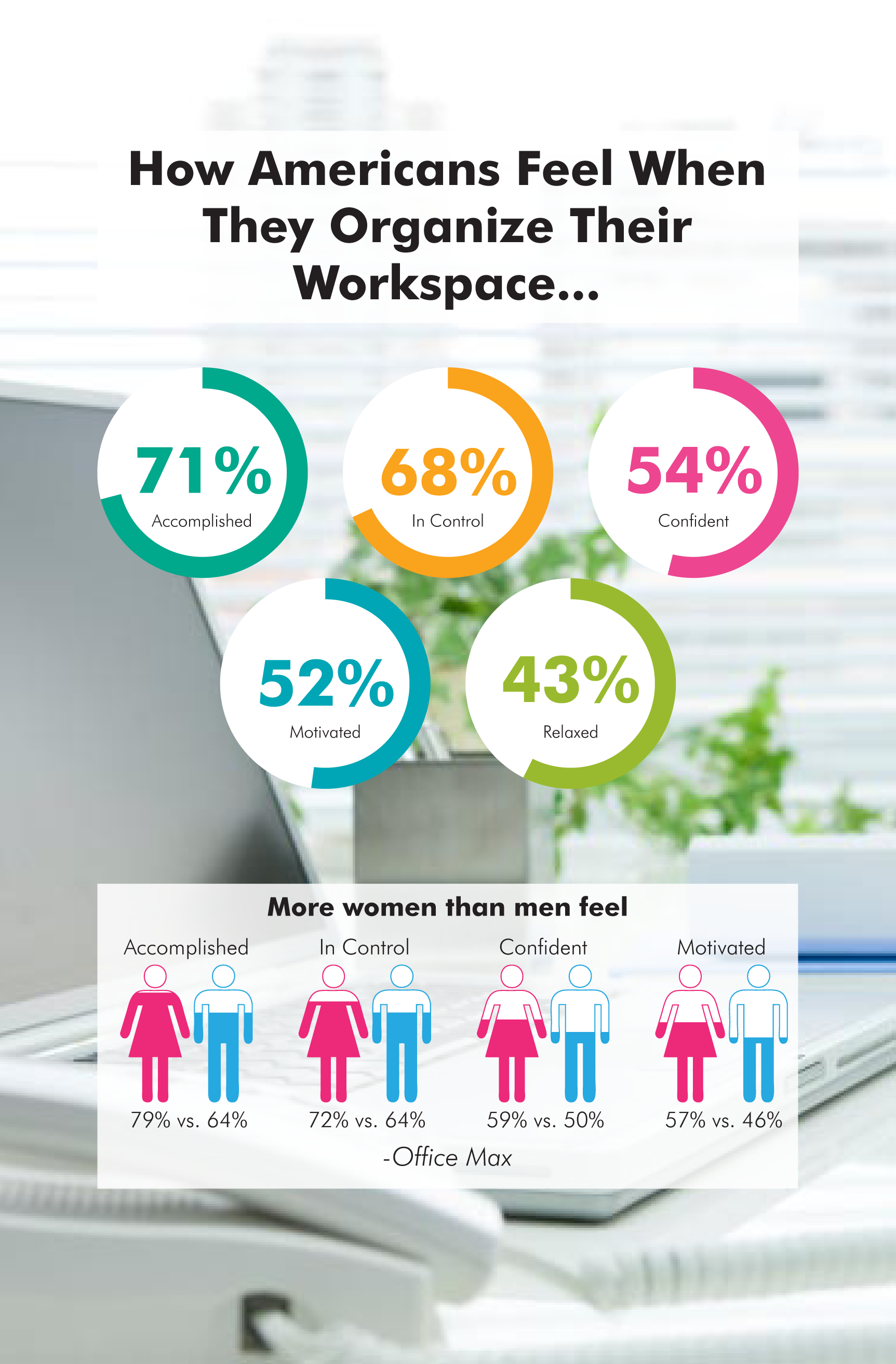
Soloists vs. Firms
The professional organizing industry is mostly filled with solopreneurs who run their own businesses. This means that the business consists of one person who handles all aspects of their business, from scheduling appointments and hands-on client time to client relations and even accounting.
The solopreneur will most likely charge a lower hourly rate, but their availability will be limited because they are working by themselves. This also means they might not be able to handle large-scale projects or quick turnarounds. The solopreneur may also lack education, as they are not required to obtain any education, training or certifications in order to consider themselves a professional, and they must take it upon themselves to take continuing education and to research industry trends or updates.
Some solopreneurs have paired up and created professional organizing companies that hire other organizing professionals as sub-contractors to form a team. This allows certain members of the team to handle different aspects of the business and to focus on the things they enjoy. However, the majority of these companies do not provide their sub-contractors with workers’ compensation insurance and many of them do not even carry liability insurance, which may leave you at risk.
On the other hand, professional organizing firms will have larger teams to handle large-scale projects and will also have greater availability for your individual projects as others are handling the scheduling and other administration related work. While there are not that many out there, larger organizing firms will have liability insurance and carry workers’ compensation insurance to protect you while they help you clear the clutter and create peace in your home. Some firms will also have official training, certifications and standardized processes that each organizer will be required to master before working with clients. These firms are also more likely to regularly share industry trends and updates with their teammates, as there is equal collaboration among the team. However, insurance and training costs do accumulate and as a result the hourly rate for these professional organizers may be higher than that of a solopreneur.
Specializations
When thinking about the project at hand and before you hire an organizer, consider if you will need to hire a specialist. Most professional organizers work on general clutter in all areas of the home, but there are some specialists who can help your project move faster and more efficiently. Some areas of expertise include chronic disorganization, digital organizing, photo organizing, and business organizing.

Chronic Disorganization
A person who has a history of disorganization so that it is interfering with their life is considered to be chronically disorganized. This is someone who has tried to get organized before but for whatever reason cannot keep it that way. Traditional and conventional methods do not work with chronically disorganized clients, but there are expert organizers who specialize in understanding why this occurs and find ways to help chronically disorganized clients. Hoarders can fall into this category but not all chronically disorganized people are hoarders. It’s also important to understand that not all organizers work with clients who hoard.
Digital
With all the technology around us, it is easy to get lost in digital clutter just as much as physical clutter. There are organizers who specialize in digital systems that include file and photo organizing on your computer and other devices. Most organizers are able to help with digital organizing but might not be as proficient as a specialist.
Photo Organization
There is a specific group of organizers who belong to APPO (Association of Personal Photo Organizers). These organizers specialize in making sense of the hundreds or even thousands of photos we each have. They will organize printed and digital photos into albums or files that will help you find what you are looking for and add to as needed. The APPO site has a list of photo organizers and allows you to check to see if there is someone in your area. Again, most organizers will be able to help with photo organizing but may not have the same training or experience as a photo organizing expert.
Business
Some organizers focus on the home while others focus on businesses. Business or commercial organizers will go into your commercial office space and help you with workflow, paper flow, and ergonomics and help you create filing systems and paper processing systems that will work for you and your coworkers. They can assist in making systems that will make everyone in your office work more efficiently together.

Now that you have considered how to hire an organizer and have an idea about what you want to accomplish with your organizing project, let’s talk about what you need to know about your organizer. We talked before about the different types of organizing companies (i.e., soloists vs firms) as well as the different types of specialists in the field. Now we will talk about the questions to ask to make sure your expert organizer is the right fit for you.
Again, hiring an organizer is not like hiring a plumber; it is more like hiring a personal trainer. It is important to find someone whose approach and communication style work for you.
It is just as important to trust and feel comfortable with the person you are inviting into your home to go through your things.
Here are some important questions to ask along with some detail as to why they are important:
What training do you have?
There is no official governing body in this industry that requires licensing, certifications or continued education for professional organizers. Organizers are responsible for keeping themselves up to date on new trends and techniques. However, organizers who have met certain requirements for hours of experience can complete the National Association of Professional Organizers certification course. Some organizing firms may have a training program they put their new hires through, as well as continued education for existing employees. While organizing firms with employees are more likely to ensure that their team is receiving on-going education, soloists often lack the accountability needed to keep continuing education a priority. Expert organizers should be comfortable sharing their training and experiences, so just ask!
Are you licensed and insured?
This may seem like a no-brainer, but if you are allowing someone into your home, you should make sure it is someone you can trust. You also want someone who will be able to handle a bad situation, should something go wrong. Anyone you allow into your home for work should carry a minimum coverage of one million dollars in general liability insurance. While we hope that this insurance is never used, it could be critical to you and your loved ones should you receive injuries or loss of property due to the negligence of your organizer.
How do I know if it is safe to let you into my home?
Organizing firms should always background check anyone who will be entering a home on behalf of the firm. Soloists generally do not perform background checks on themselves so you will need to take them at their word that they have never been involved in criminal activity.
Since the security of you and your family is of the utmost importance, you should ask if your organizer has passed a background check.
What happens if you get hurt while at my home? Do you have workers’ compensation insurance coverage?
This is a question seldom asked to companies that are working in your home; however, it may be one of the most important questions to ask. Many individuals will not allow workers into their home unless they are with a firm for this very reason. Very rarely will a soloist have insurance that covers them in the instance that they are injured at your home, and personal insurance policies rarely cover injuries while at work. Should someone that is working become injured in your home, you may be held liable for their injuries if they do not have workers’ compensation insurance coverage.
How do you charge?
There are a couple of different ways expert organizers will charge you for their services. The most common are project-based or hourly-based.
Project-based pricing is usually quoted after a consultation from an expert organizer. This may be a problem if you get quoted too little, then the team rushes to complete the job and the quality of work suffers. This leads to an unhappy customer with a rushed job and an organizer who is unhappy with his
or her performance. Nobody wins! If quoted too
high, then the Parkinson’s Law takes effect and the team will (naturally without even knowing it) expand the
work to fill the time allotted. This means wasted time for the organizer and too much money spent by the client.
Again, nobody wins!
An hourly pricing structure, which is billed at the end of each session, provides the following:
1. It keeps the team moving as quickly as possible, because if you are not happy with the progress after each and every session, the likelihood of you requesting to continue gets drastically reduced. This results in a win for the client who receives the optimum amount of work completed within the allotted time, as well as a win for the expert organizer who wants nothing more than to satisfy their client.
2. It keeps the quality of work optimized. If there are only a few hours set aside for that day, the expert organizer can assess what can be accomplished in that period of time and work as hard as possible to meet the goal set at the onset of the appointment.
3. It keeps Parkinson’s Law at bay. This means that your expert organizer will do their best to complete as much organizing as possible within the time allotted instead of the allotted time dictating what will be accomplished.
Is my information private?
Your expert organizer could be handling anything in your home, from your underwear to your tax papers, and it is important to know that your information will be safe. Does your organizer have a track record of keeping clients’ information private and do they have anyone holding them accountable to a standard of absolute privacy?
Do you have a no-judgement policy?
It is understandable for clients to have some embarrassment when having people into their homes.
It is important to be comfortable with letting someone in without worrying they will criticize or judge you and your space. NAPO’s code of ethics states:
“We will serve our clients with integrity, competence, and objectivity, and will treat them with respect and courtesy.” Just simply asking your organizer what their policy is may help keep your mind at ease when it’s time for your first appointment.
Do you have a service guarantee?
There are many different organizing techniques and methods of organizing out there and they might not
all work for you, so it is important to ask about a service guarantee. You may not be able to understand the method or system your organizer is putting in place or you might just not like their teaching style. Most organizers should be able to ask you questions and determine which method would be best for you, but that extra assurance doesn’t hurt.
These questions are a good starting point when choosing your expert organizer. If you have specific questions about your project, you should feel comfortable asking when you are scheduling your first appointment. The more information they can provide before your first session the better.
Once you have all your questions answered and have your first session scheduled, it’s now your turn to get ready.


A lot of clients get nervous about hiring a professional organize and then having that expert organizer come into their home. They always ask…
“What should I do before my first appointment?” Our answer is always, “Nothing!”
Preparing for an expert organizer is not like preparing for your cleaning service or even for guests. We do not want you to clear your counters and floors by shoving things into closets or cabinets. The reason for this is simple: We want to see the space in its usual state so we can assess where you might need help and how your current system is failing.
For example, if your dining room table has become the catch- all for school papers and incoming mail, you might need a new system for paperwork. If you have a filing cabinet upstairs that is full of outdated papers, your filing system is not working and needs to be addressed.
We will also note that the filing system that is upstairs will not help if you process all your papers at the dining room table. The expert organizer will help you sort through what you have and create a new system that will help keep things organized.
When your expert organizer can see the space in its common state, diagnosing your disorganization becomes a lot easier. This also allows the organizer to get to know you and the way you function in your house much faster based on the things you have in each space. The job of an expert organizer is to create an organizing system that works for you and your space, not create a general organizing system that works in most cases. Being able to see how you use each area of your home will help in designing the right system for you.
The only thing you can do to your home to prepare for your first session is think about your goals for each space. Walk around your house and see how you are using the different areas of your home and ask yourself if that is the use you want for them. When you are giving the tour of your home to your expert organizer, explain to them how you are currently using the space, as well as what your goals for the space in the future include. Being able to explain your goals to the expert organizer from the start will help the organizer understand what needs to be done to make you happy in your space. Having clear goals is also a great thing to keep in mind when starting the organizing project, as you can refer back to the end goal when making decisions on what to keep and what to donate or toss.
It is normal to feel a little nervous about having an expert organizer come into your home for the first time, but don’t try to hide the reason you called. An expert organizer is a professional who does not judge you or the space they are working in. Keeping your space in its normal state will help the organizer maximize the session and really tackle what is bothering you the most.
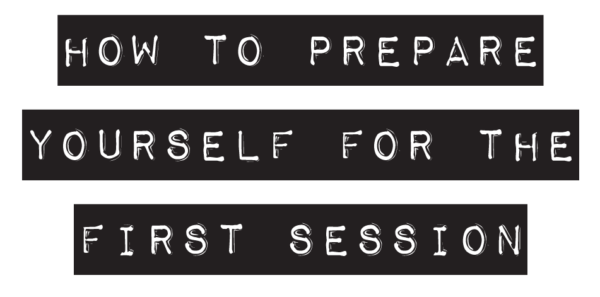
Getting Ready
Now that your home is prepared for your first organizing session, we are going to have a look at how to prepare yourself for the session. The more you can prepare before, the smoother the session will go. For many of our clients, we are tackling a project they have been avoiding, but taking it on with the help of an expert will make it easier. By preparing for the session, you will make the most out of the time you have with your organizer and you will be happier with the results. Here are some key things to remember when preparing for your session.

Get Started Early
If you are getting ready for a move or have become overwhelmed with clutter in your home, the first organizing session with an expert organizer may be the most challenging. This is because the first step in the organizing process is to sort, which means that you will be quickly making many decisions. Research has shown that decision making is a depleting resource for us. The longer the day, the more difficult it is to make decisions. For this reason we like to begin our sessions in the morning when you have plenty of decision-making power to last you throughout the session.
Get Plenty Of Rest
It’s no secret that getting a good night’s rest helps you start your day feeling refreshed. As we said in the last paragraph, you will want to begin your organizing project in the morning when you have the most capacity to make decisions. Getting a good night sleep will give you a head start to having a productive organizing session.
Reduce Distraction
It is important for you to be able to focus your full attention on the project while in the first session with your organizer. This will help them learn about you, your space, your goals, how you learn and how you live in your space. Having prior arrangements to take care of things that may distract you, such as children or pets, will help the session run smoothly and quickly. We also recommend turning off or silencing your phone so you aren’t distracted by texts or phone calls from family and friends asking how the session is going.
Have Supplies Ready
We typically recommend that you not purchase anything for your first session. However, if you are trying to complete a specific project that requires special materials or supplies, you will want to have those materials or supplies ready for the organizer so that a special trip is not required to complete the project. Examples of special materials or supplies would include files for your new filing system, hangers for your closet or boxes and packing supplies for a move. Your expert organizer will come prepared with all of the supplies and tools that they need to complete a general organizing project such as labels, liners, Sharpie’s and step stools. If you are not sure about the materials or supplies needed for your project, then your project coordinator or expert organizer will be able to assist you with what you will need.
Be Ready And On Time
Being on time for your session is very important, and not only being on time but also being ready to start on time. This means waking up with enough time to get through your morning routine without being rushed. You will also want to get hydrated and have a good breakfast before your expert organizer arrives. This way you will be energized and ready to make the most of your first organizing session.
Know Your Space Goals
We touched on this topic when we talked about how to prepare your home for your first session. It is important to know how you want your space to function after your organizing project is complete. Being able to communicate how you want the space to function will provide valuable information to your expert organizer which will help them help you achieve your goals for the space. If you are not sure, that’s okay too. Your expert organizer is well equipped to help you decide on the flow and function of your home.
Know Your Lifestyle Goals
Knowing your goals for your space is one thing, but knowing your goals for your lifestyle could help take your organizing sessions to the next level. Knowing what you want for your future allows your expert organizer to help you not only clear the clutter but pave the way to your future/better self.

Now that you have decided that you need an expert organizer, have selected your organizer, and have prepared yourself and your home, it is time to learn what to expect from your first session. You may be feeling anxious or excited about your upcoming session, so we want to give you an idea of what your session might be like. Let’s explore the five Ws for your first session.
Who:
After researching organizers in your area, you should already have an idea about who is coming to your home. Whether you hired a solopreneur or a company, you should be able to get some information on who is coming. If you are feeling nervous, it might help to review information about your organizer and their company so that you can feel more comfortable about them and their experience. You can do this by visiting their website and social media pages.
What:
Upon arrival, your organizer should have an idea of what your organizing project may entail, but they may ask for a tour of the home and a deeper explanation of your goals. Even though they may only be working in one area of the home, seeing all your spaces may help them assign homes for items in the area you are working. After a brief tour and discussion about your goals and ideas, the organizer will get started on the project. This is where they will begin with the five steps of organizing. Here is the general idea of the process:
The Five Steps of Organizing
Sorting – The first step is to sort the items in your space. This means looking through the items and grouping like items together. For example, if you are working in a kitchen, you may group items into categories such as baking, food storage, food prep, plates, serving items, cups, cleaning supplies, specialty, etc.
Decision Making – As we sort through items, we want to decide if each item is something we want to keep or if it is something we want to toss, donate or sell. Some people need to have all their items sorted before they can make a decision so they can see how much of one thing they have. Others can make these decisions as the sorting is in progress. It is up to you to communicate with your organizer on how you want to work in this step. The organizer is not there to pressure you to get rid of items but to facilitate decision making to reach your goals.
Assigning A Home – Now that the items are sorted and the items you are not keeping have been removed, it is time to decide where each group of items will live. For example, in the kitchen, we would want to put the baking and food prep items near the oven and stove as that would be near the place you would need them. Your organizer should have a general idea of where it may be best to store an item based on its use, so they may ask you questions about how often you use an item or how you use it.
Contain – The containing step does not mean putting things in containers; it means containing it in its new home. Whether that is in a cabinet, shelf, drawer or container, the containing process helps us set limits on what items we can store. Though you already made a decision on what items to keep, the space you have to contain the item might not allow for it, so you may need to reevaluate your decision.
Maintain –The last step is to maintain, and this means keeping up with the system you and your organizer have made using the previous steps. This means putting items away in their assigned homes and making an effort to keep them there. The maintenance step can be difficult and may require others in your household to participate. If everyone in the home knows the goals and the places where things now belong, it may help keep things organized, so make sure to communicate that.
The five steps of organizing are not black and white and will differ for each client, room and situation. The steps often intermingle with each other and you may jump back and forth between steps.
Where:
You have probably been thinking about hiring an organizer for a while and have multiple spaces you want to get organized. An important thing to think about for your first session is where you want to get started. For most clients, we ask them which space is bothering them the most. We want to make the biggest impact in the first session to help the client stay motivated and keep things moving forward, so getting your biggest problem area resolved is ideal. Though this space may not be the worst area, it may be a space you use every day or something you can’t stand looking at anymore.
When:
Your session is scheduled for the day and time you have selected. Be prepared to get to work when your organizer arrives for your appointment. There may be a few minutes in the beginning of the session for the tour and a brief explanation of the process and plan. It is important to communicate with your organizer if you will be running late or will not be able to participate during your appointment. Eventually, your organizer may be able to work in your home without your help, but in the first few sessions, they really are getting to know you and how you use your space, so your involvement is important.
Why:
You have hired a professional for a reason, and they should be ready to help you with things you have been unable to do on your own. Your professional organizer should be prepared and have the necessary tools (minus containers) that are necessary to organize your space. This includes but is not limited to trash and donation bags, label makers and label tape, file tabs, command hooks, etc. The tools, experience and training that your organizer brings with them will help the process run smoothly and help make the project more productive. That is why you hired a professional!
It can be a little scary to think about trying something new like hiring a professional organize, especially if you don’t know what to expect. We hope that by exploring the five Ws, you have a better understanding about what your first session might look like.
If you have read our Ultimate Guide To Finding An Expert Organizer and you have already made the all- important first step of contacting a professional in your area, then congratulations are in order! You are already on your way to a simpler lifestyle that will help you focus on what matters to you most.
Browse our website, ask questions, check out your local list of organizers, get to know us and be sure to schedule a time to chat with us today. It’s never been so easy to get organized!
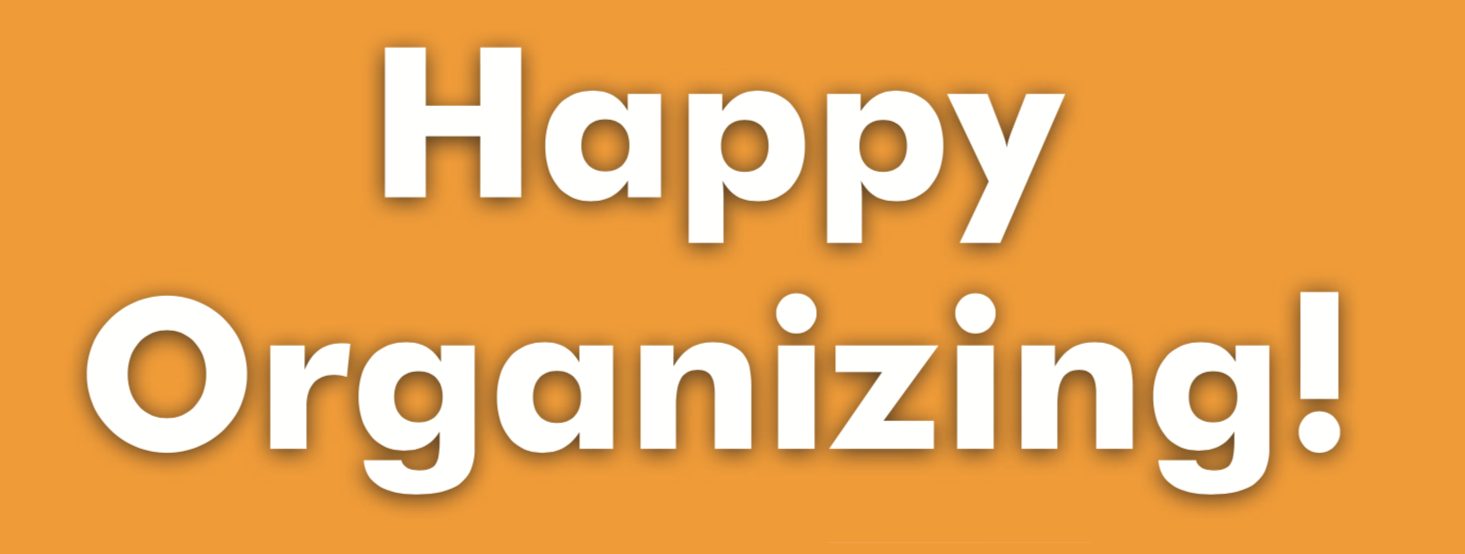
Got Questions?
We’d love to help!
Fill in our form and we’ll give you a call back.
We love that you’re ready to get your project underway!
Please note that If it’s after 6pm Monday – Friday, then we’ll be calling you at our first opportunity back in the office tomorrow.
We look forward to helping you create order!
